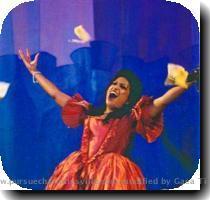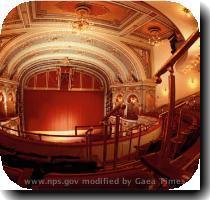Innovation brewing at traditional Viennese cafes feeling heat from chains
By Veronika Oleksyn, APMonday, January 11, 2010
Innovation brews at Viennese coffeehouses
VIENNA — At age 98, Leopold Hawelka — looking smart in blazer and bow tie — still sits in his famous cafe on most mornings, greeting guests and keeping a close eye on staff from a table near the kitchen.
“This is a real Vienna coffeehouse,” says Hawelka, whose establishment in the heart of the Austrian capital attracted world renowned writers and artists for decades.
The Cafe Hawelka, which opened in 1939 and was previously known as the Cafe Ludwig, is perhaps the most storied of the hundreds of coffeehouses in the city where locals and tourists alike can spend hours in a setting that can be a reminder of ages past.
But even these celebrated icons of Vienna’s golden age are feeling the heat from the likes of Starbucks — and the musty bastions of tradition are being confronted with the need for innovation.
An exhibition titled “The Shape of the Cafe to Come” showcases quirky ideas by young designers aimed at giving such coffeehouses a modern twist.
Solicited by Austrian architect and designer Gregor Eichinger, the ideas — displayed at Vienna’s MAK museum until the end of the month — include a sleek contraption that serves as table lamp, coat hanger and newspaper holder and has a laser pointer that shines a spotlight on the ceiling to help customers get the attention of a busy waiter.
Eichinger argues that, historically, coffeehouses were always the city’s most modern spaces, constantly adapting themselves to the latest trends. Now, he claims, they are trapped in the past.
“One has to bid farewell to the thought that the coffeehouse is something old — it’s contemporary and modern and forward looking,” he said.
Rainer Staub, junior manager of the Cafe Sperl that dates back to 1880, said the main challenge was preserving a distinctly traditional atmosphere while providing services customers have come to expect, such as free Internet access.
The 41-year-old said his family’s coffeehouse has offered free wireless for three years now after realizing it helped attract younger laptop-toting customers. The euro99 ($144) monthly fee pales compared to the euro7,000 ($10,165) annual bill the family foots for subscriptions to newspapers that patrons can peruse free of charge.
Generational disconnects can also hamper change.
Staub’s 78-year-old father Manfred — who has run the establishment since 1968 — doesn’t always agree with his son’s suggestions.
“Sometimes I have ideas that are probably too progressive,” said Staub, chuckling as he told of his father’s resistance to computerizing the cafe’s accounting system which, to this day, is done by hand.
Many coffeehouse owners remain deeply resistant to change. Fritz Scharnagl, 77, put off retirement for years because he was wary of selling his business to someone who might tamper with decades of tradition.
“I want to make sure it gets into the right hands,” said Scharnagl, who has run the Cafe Krugerhof — located in a quiet side street just minutes from the Vienna State Opera — since 1964. To his customers, he’s simply known as “Herr Fritz.”
“It would hurt if someone threw all of this away,” he added, lovingly stroking a worn chair and pointing to the cafe’s traditional decor that includes a mirrored counter and dark parquet floors.
Several years ago, he rejected a potential buyer who wanted to transform the establishment into a cafe-cum-ski store.
Such sentiments are understandable. For some, coffeehouse memories — and friendships — can last a lifetime.
Paul J. Friday, an American clinical psychologist who studied in Vienna between 1965 and 1967, spent hours at the Krugerhof.
“It’s where we hung out, it’s where we lived,” Friday said during a telephone interview from Pittsburgh, describing the Krugerhof as “a very special place.”
“Whenever we go back, we go to see Herr Fritz,” Friday said.
Cristina Ljungberg, a Sweden-based entrepreneur originally from the U.S. state of Indiana, spent many nights at the Cafe Hawelka with her sister Erin when they lived in Vienna for two summers a decade ago.
During a recent trip to the Austrian capital, Ljungberg asked Hawelka to autograph a book she planned to surprise Erin with at her wedding shower centered around Vienna’s coffeehouse culture.
“I wouldn’t change a thing about this place,” Ljungberg said.
If Guenter Hawelka — Leopold’s 69-year-old son who now runs the cafe with his two adult children — is to be believed, Ljungberg needn’t worry.
“Only the old style is romantic,” he said. “In the future nothing will change.”
_____
On the Net:
Austrian Museum of Applied Arts/Contemporary Art (MAK): www.mak.at
Cafe Hawelka: www.hawelka.at/
Tags: Austria, Europe, Food And Drink, Occasions, Restaurants, Vienna, Weddings, Western Europe

